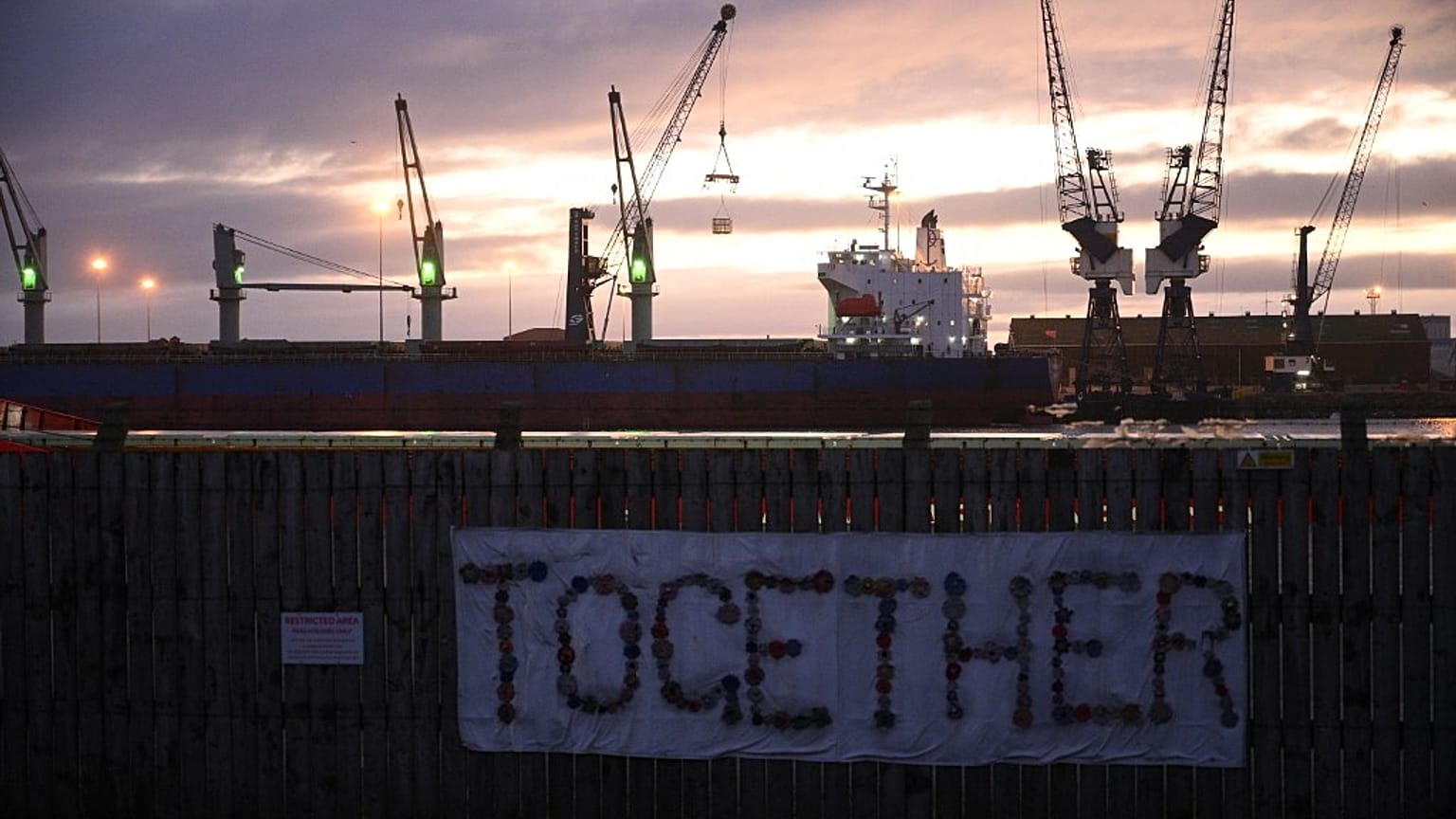The Chair of the European Parliament's UK Coordination Group told Euronews the EU does not want conflict with the British.
The European Union will react strongly if the United Kingdom continues to make unilateral decisions in relation to the Northern Ireland Protocol, according to the Parliament's top MEP on Brexit.
David McAllister, who chairs the UK's Coordination Group, was speaking to Euronews prior to the five-year anniversary of the UK's referendum on EU membership on Wednesday, where he said that the difficulties between the two must be resolved.
"We understand the difficulties in Northern Ireland. We are ready to be flexible, but if the UK side continues a policy of taking unilateral measures without discussing this with the European Commission and also with the Republic [of Ireland], then there will have to be a firm, swift and also resolute retaliation coming from the European Union," McAllister said.
"We don't want to do this. We are not interested in having any kind of trade conflict with our British partners. What we want is to see a real commitment to the roadmap. So let's sit down and let's discuss these issues. Let's find pragmatic and flexible solutions."
The Northern Ireland Protocol is part of the Brexit deal which keeps the country in the bloc's single market for goods, even though it is no longer part of the EU.
That means checks on many products entering it from England, Scotland, and Wales.
But a three-month grace period of no inspections was agreed between both sides to help supermarkets with the transition from January to March this year.
However, the UK decided - without consultation - to extend this period until October, which the EU says breaks international law.
The German MEP also said that the two sides must resolve the difficulties at the UK border after thousands of EU citizens were refused entry in the first three months of 2021.
"We call on the British authorities, just as we call on the 27 authorities of our national member states, to treat citizens on both sides in a pragmatic and reasonable way. Let's not create additional burdens. Let's make this relationship work," McAllister told Euronews.
"And this relationship is not only about trade and businesses, it's about people living on both sides of the channel, people with their families who hopefully can continue to live as best as possible despite the political decision."















